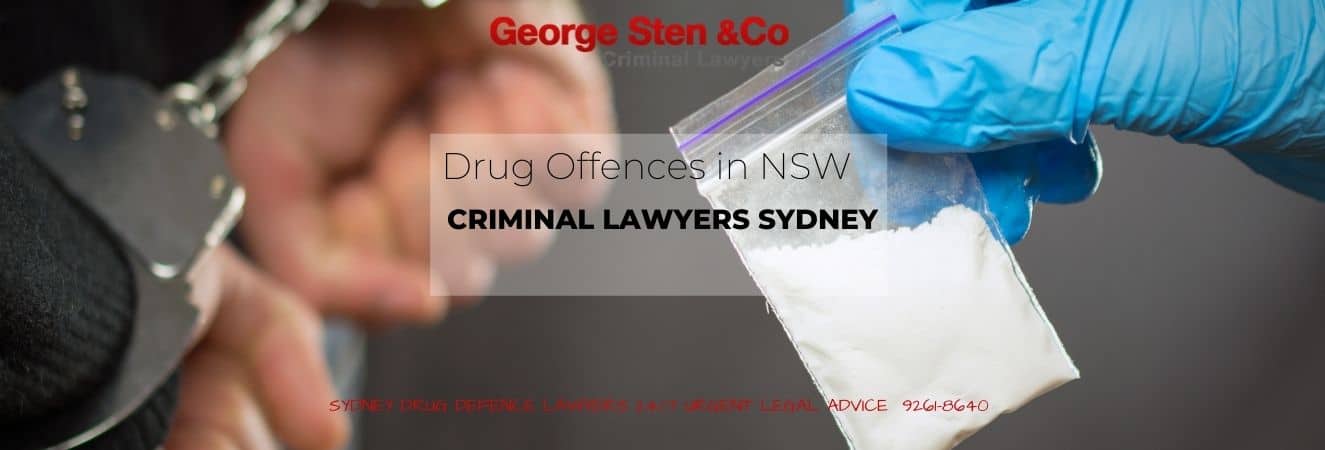- Highest Quality Legal Defence
- 0412 423 569
- 24 hr service
- (02) 9261 8640 緊急案件!Urgent Call
- Make Booking
Drug Lawyers Campbelltown

Drug Lawyers Campbelltown | Drugs Charges | Campbelltown Court House Representation
Drug Lawyers Campbelltown “Complex Matters Require Expert Legal Defence”
Being caught by the police with illegal drugs or a prohibited plant or substance can result in a criminal conviction and very serious penalties. In NSW the Drugs Misuse and Trafficking Act 1985 is the main statute which regulates drugs including pharmaceuticals and other substances. Some of the most common substances people find themselves in court for possessing or selling include cannabis, ecstasy, cocaine, ice and MDMA. From March 2017 to March 2018 there were 1146 drug offences recorded in the Campbelltown area. If you have been charged by the police with a drug offence, it is essential to retain an expert criminal defence lawyer with extensive experience in defending drug charges.
Being convicted of a drug offence allows a court to impose a range of penalties including full time custody. If you are found guilty of a drug offence, your employment prospects will be drastically reduced and you will not be able to travel to certain countries.
If you have been caught by the police with a prohibited substance such as cannabis, cocaine, MDMA or ice, it does not automatically mean that you will have a criminal conviction recorded or that a penalty will be imposed at all. The police are required to prove certain elements of the particular offence and the magistrate or judge must be convinced that a penalty should be imposed. An expert criminal defence lawyer is able to ensure the best possible outcome is achieved and draw on years of experience and knowledge to do this.
On Saturday 9 June, NSW police patrolled the Above and Beyond Music Festival in Sydney with drug detection dogs. Despite studies showing drug detection dogs falsely identify members of the public of being in possession of prohibited substances approximately 75% of the time, the police refused entry to anyone at the event identified by the detection dogs of being in possession of a prohibited substance even where no drugs were found. This decision by the police has drawn strong criticism from the public as well as legal experts for its possible unlawfulness. Denying members of the public from attending a music festival which they have paid for based on a possible false positive indication by a drug detection dog may amount to a breach of a person’s presumption of innocence until proven guilty and an abuse of police power.

Drug Lawyers Campbelltown – Innocent Until Proven Guilty
Simply because a person is allegedly found to be in possession of a prohibited substance or illegal drugs does not mean they are guilty or will be found guilty of having committed a crime. There are numerous considerations which need to be properly examined before accurate legal advice may be provided. For example, police are strictly regulated by the Law Enforcement Powers and Responsibilities Act as well as the Evidence Act 1995 (NSW). Where police do not follow the law in obtaining evidence, such as conducting an unlawful search, generally the evidence will be inadmissible meaning it cannot be used against an accused person.
The ‘Exclusionary Rule’ is a rule which applies to both civil and criminal proceedings and provides that evidence which is obtained improperly or illegally ‘is not to be admitted unless the desirability of admitting the evidence outweighs the undesirability of admitting the evidence given the manner in which it was obtained’.
This means that where evidence which is to be used against an accused person has been obtained improperly, the court hearing the matter may exclude the evidence from being used against the accused person. An example of this is where police conduct a search on a person or vehicle without the person or the driver of the vehicle’s consent and where the searching police officer does not have reasonable grounds to suspect that, among other circumstances under Section 21 of the Law Enforcement Powers and Responsibilities Act 2002:
-the person has in his or her possession or under his or her control, anything in contravention of the Drug Misuse and Trafficking Act 1985, a prohibited plant or a prohibited drug.
It is not uncommon for police to conduct unlawful searches on persons, whether knowingly or not. Police will often rely on a person’s ignorance of the law in order to gain consent from the person to conduct a search of them. In other words, a person may not know they can refuse a police search of themselves if the police do not have reasonable grounds to suspect that certain circumstances exist under the Section 21 of Law Enforcement Powers and Responsibilities Act 2002.
George Sten & Co Criminal Lawyers have have over 50 years of experience in defending serious drug charges. If you have been caught with illegal drugs, a prohibited plant or substance, contact George Sten & Co Drug Lawyers Campbelltown to ensure your matter is properly defended. We are available 24 hours a day, 7 days a week and can be contacted on (02) 9261 8640 during business hours or 0412 423 569 outside of business hours. We may also be contacted via email at [email protected].

